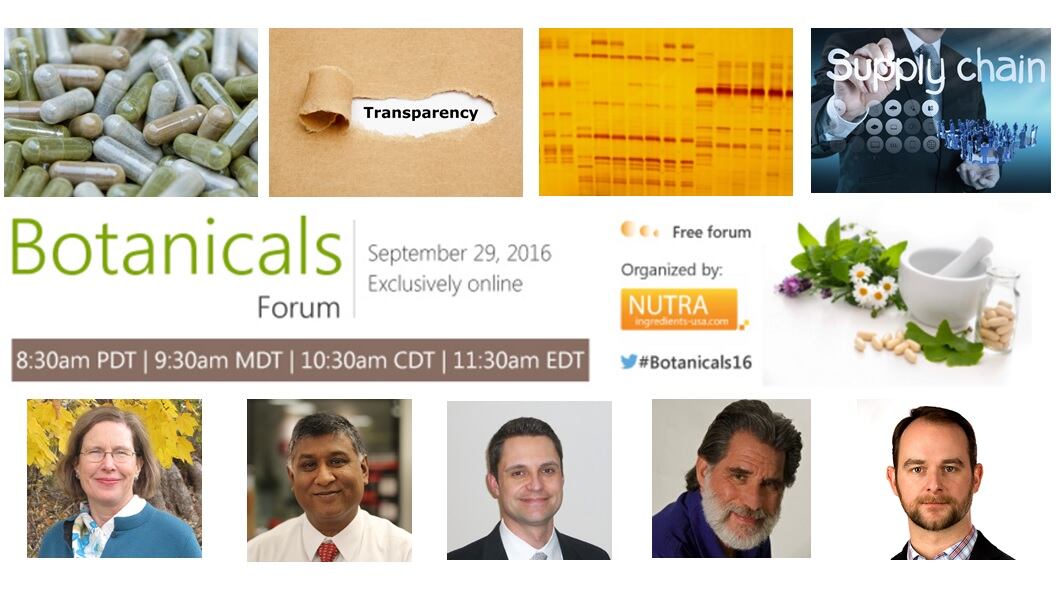“I cannot stress the importance of vetting your supply chain,” said Aaron Secrist, director of quality/R&D at NOW Foods during a panel discussion at the Rocky Mountain Dietary Supplement Forum last week in Boulder, CO.
Joined by Elan Sudberg, CEO of Alkemist Labs, and Roy Upton, executive director of American Herbal Pharmacopoeia, the topic of the day was how to shed botanical extracts’ reputation as the Achilles Heel of the dietary supplement industry (as the title of the session implied).
Adulteration and false advertising are two conundrums facing botanical supplements, which often use extracts or compounds instead of the whole herb. A recent person-on-the-street survey we conducted captured the doubt consumers have when it comes to herbal and botanical supplements’ safety, efficacy, and accuracy of the label.
Having the right documents for the FDA
Secrist argued that it is important to maintain all documents and be very specific with suppliers from the first time you place an order. “Have detailed specifications to suppliers so they know exactly what you want,” he said. “You won’t be able to test if you didn’t know how it was extracted.”
Important points to cover while choosing or ordering a botanical extract include what plant part, what solvents were used, what carrier, ratio, and so forth. “You have to set that precedent early,” he added.
The detailed information and batch records will be important tools when communicating with an FDA investigator, he said. Nancy Schmidt, an FDA compliance officer who was present at the forum, concurred. “We do not have to be herbal experts, you’re the herbal experts,” she said. “You need to tell us; you just need to prove it using documents and science.”
When organoleptic evidence doesn’t cut it
Legally, organoleptic analysis—using the simple senses of sight, smell, etc.—is an acceptable way to test an ingredient. But for some formats, such as powders, more will be required. “You need to be able to tell us why this white powder is different from that white powder,” Schmidt said.
And saying ‘I know because I’m an herbalist with a degree from so-and-so’ doesn’t cut it, many of the panelists and attendees of the forum agreed. One way to provide solid evidence, when other analyses such as macroscopic, microscopic, or chemical doesn’t work, is by visiting the place where the extract is sourced, Secrist said.
“You need to get out, you need to see your supplier’s facility,” he said. He went on a trip to China and spent two months there to visit suppliers. His tips? Whoever you send to the facility doesn’t necessarily need to be a botanist, “but they should at least know what you’re looking for and some GMP basics.”
Another tip, in case your supplier is overseas and speaks a different language— “find your own translator, don’t use one provided by the supplier.” This is especially helpful to get candid reactions from your supplier, and to get to the bottom (without rehearsed responses) of why they won’t let you see that one dodgy corner.
NutraIngredients-USA’s Botanicals Forum
Experts from Nature’s Way, the American Botanical Council, Herbalist & Alchemist, and GNC will discuss the challenges and opportunities in the botanicals section in NutraIngredients-USA’s Botanical Forum on September 29. The event is free to attend. For more details and to register, please click HERE.

